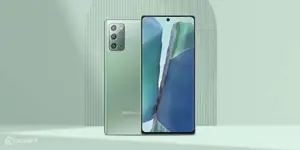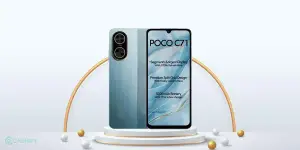Today we will be doing a full comparison between the Stock Camera and Gcam for our readers to understand the camera features of iQOO 7 better. We will be looking at how the iQOO 7 camera performs in multiple light conditions and we will use multiple features as well. If you think iQOO 7 is an average camera phone, this article is definitely for you!
iQOO 7 comes with a triple rear camera setup with a 48MP primary sensor which is a Sony IMX598. When we look at the second lens, it is a 13MP lens with a 120-degree wide angle and is a 2.5cm macro lens. The third camera is a 2MP mono camera. iQOO 7’s rear camera provides OIS + EIS stabilization. This was all about the specifications of the iQOO 7’s camera, further we will be discussing how the camera actually performs in multiple-lighting conditions.
Also read: iQOO 7 5G Review – Not Just A Gaming Phone
We will first walk you through the camera’s quality when daylight shots are clicked on the phone. For instance, when you click a photo of the street on the stock camera as well as on the Gcam, a higher green contrast appears in the leaves of a tree in the photo clicked by the Stock camera.
On the other hand, sharpness and details of the picture come out better in the picture clicked by Gcam. Stock camera merges the leaves a bit whereas the Gcam removes the yellow sunlight tone on the street and adds a slightly pinkish tone to the street. Even the flowers appeared red in the picture shot on Gcam which actually are pink in colour.
If we move to ultra wide angle shots on the stock camera, the coverage area is great whereas Gcam does not provide an ultra wide angle lens. In dynamic range shots, iQOO 7’s Stock camera picks a good amount of colours and details.
On the other hand, dynamic range shots on Gcam still leave behind an orange and pink texture in the pictures. iQOO 7 camera app gives a 2X zoom option by default. A picture taken with 2X zoom on the Gcam results in giving sharp details whereas the Stock camera blurs the text in the image a little. The colours are more natural in the Gcam 2X zoom shot.
Also read: 25 Questions With iQOO 7 5G
When we talk about the human portraits, both the pictures were decent. However, Gcam shot was completely natural and shows a person exactly the way they look with no extra beautification. This gives out a very raw and crisp portrait. On the other hand, the stock camera adds beautification in order to make a person look better in the picture. The Bokeh effect is very impressive in the stock camera shot whereas the Gcam adds a limited blur effect to the background. Edge detection is not up to the mark in both the camera shots as it blurs a portion of the human object too.
Looking at selfies in daylight, Stock camera’s selfie image captures better colours and human objects as compared to the Gcam one. However, the background blur isn’t good in the stock camera selfie whereas Gcam adds redness to the selfie but the blur effect works properly and is exactly like what it is expected to be. iQOO 7’s stock camera captures yellow and green colours very accurately but Gcam adds an orange tone and the green colour’s warmth is decreased too. While we look at the picture of a road, Stock camera adds a white colour to the picture whereas the Gcam provides the original grey colour of the road.
Also read: iQOO 7 Legend Review – The True Gaming Champ
Let us have a look at how different colours look in pictures captured by both the cameras. Yellow colour comes out as an edited tone on the Gcam whereas when we talk about the red colour, stock camera makes red colour appear much more vibrant while Gcam dulls down the red colour towards orange tones. Looking at whites, the stock camera increases the brilliance in the picture which makes white colour look whiter and at the same time Gcam captures the white colour in its true form.
An orange flower shot on the macro lens appears with a lot of saturation when shot on the stock camera which messes up with details of the flower when we zoom in. On the other hand, Gcam captures the raw colours of the flower. Similarly when a white flower is shot on both the cameras, it nearly looks the same in both the pictures.
When we use the video mode with ultra stabilization mode on, the resolution is restricted to 1080p whereas the frame rate is restricted to 60fps. The Gcam has some interesting features in the video mode like Cinematic pan stabilization in 4K condition.
In indoor lighting conditions, a yellow toy car placed in front of a red wall looked really fascinating and beautiful. However, if you zoom into the picture the toy car’s headlight is blurred a little bit which means the object is not in focus. On the other hand, the Gcam shot focused well on the headlight and the tyres looked amazing as well.
Selfies on both the cameras are quite satisfactory as well. However, the stock camera selfie keeps the skin tone very natural in the picture whereas the Gcam auto-adjusts the same. Gcam at the same time added sharpness to the facial hair and it came out in the picture quite impressively.
Moving further with the low-light shots, the stock camera makes pink text look quite legible which can be read even if the picture isn’t zoomed in. However, other than the text the picture looks a bit dark. The Gcam clicks a low-light shot that is quite lit up but the text is not as pink as the original text. The same shot with a Night mode clicked on the stock camera looks amazing even though the pink text spreads a bit the night mode handles it well.
If we talk about low-light selfies, there is noise visible in the selfie clicked on the stock camera and sharpness is missing as well. At the same time, Gcam low-light selfie provides slightly better details but the noise is visible in this selfie as well.
Talking about selfie fill-light feature, the face and clothes of the human object light up well. On the other hand with Gcam selfie illumination on, the selfie comes out with great details and a clear face even in very low light. Even the background is fairly visible in the selfie clicked on the Gcam in very low light conditions.
Along with its gaming performance, iQOO 7’s camera is amazing as well. For a Rs. 30,000 phone, the camera results of iQOO 7 are very satisfactory. The Gcam of iQOO 7 may not be up to the mark but the stock camera works brilliantly beating the Gcam in a lot of circumstances. Stock camera of iQOO 7 is great for usage in day-to-day life. The camera shots clicked on iQOO 7 are definitely social media worthy as they would be great to showcase and publish on social media.
Overall, we can conclude that iQOO 7 is an amazing all-rounder in the under Rs. 30,000 range. If you are looking forward to buying this phone it is a great phone to purchase and is available at a price of around Rs, 30,000.
















